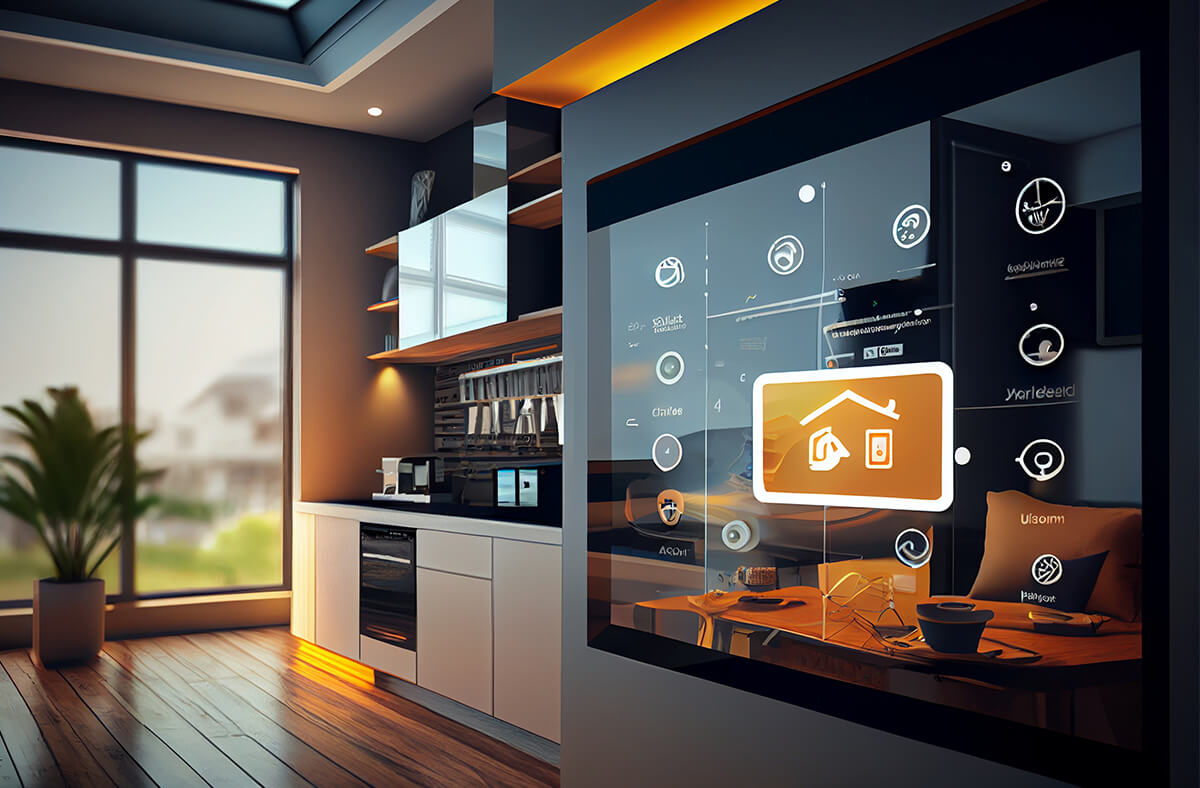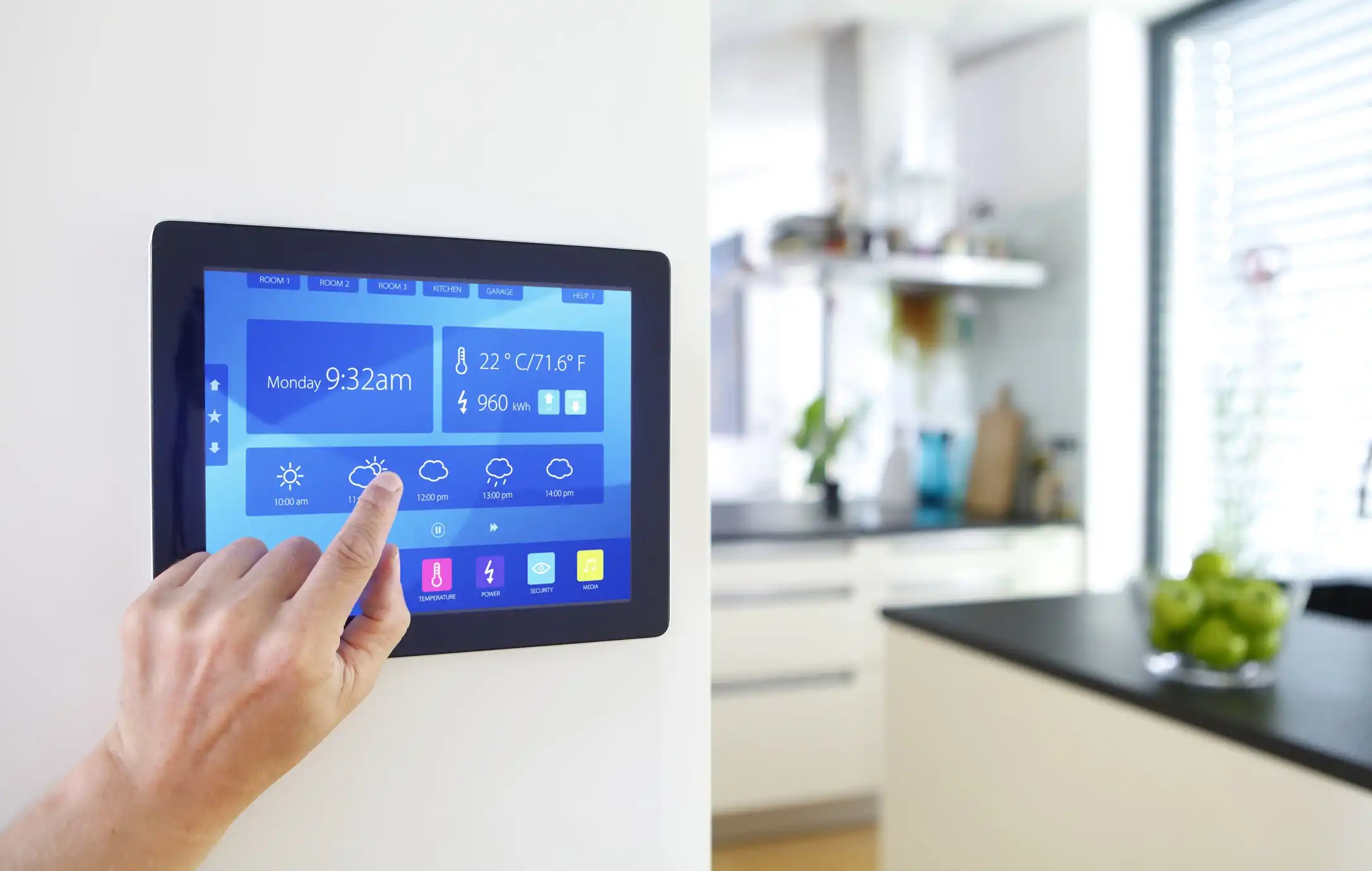Smart Home
Transforming your house into a Smart Home has become a reality
A connected lock doesn't make a smart home. If you want to take home automation seriously, start with a smart home platform

A smart home platform is a software framework that controls and manages multiple devices from different manufacturers, usually through a smartphone or tablet application. Most smart home platforms also have a hardware component, such as a hub and/or a smart speaker/screen (we'll talk more about hubs shortly). Of course, if you own a smartphone, you already have a smart home platform in your hands, although you may want to add a hub or smart speaker for more entertaining features.
The main advantage of a smart home platform is organization. It allows you to put all your connected devices in one app where you can organize them into groups. This makes controlling things much simpler. For example, by grouping all the lights in the kitchen into a group called "Kitchen," you can press a smart button or say "Turn on the kitchen lights" and have all the lights turn on.


A smart home platform is also essential for creating automations (also known as scenes and routines) that make your home "smart". These can automatically execute devices based on certain triggers, such as the time of day, when an action occurs (motion in a hallway, closing a door), or a command to a voice assistant. Automations can perform one or more tasks. For example, every evening at 9:00 PM, lock the back door; or, when the front door unlocks between 5:00 PM and 8:00 PM, play the smart speaker with a playlist, turn on the lights to maximum brightness, and adjust the thermostat.
Things to consider when choosing a smart home platform

What is a smart home hub and do you need one?
A smart home hub isn't necessary to manage a smart home, but it can do more with one. A smart home hub is the brain of your smart home platform, managing and controlling devices in your home. Although the smart home app on your phone largely does the same thing, when you leave home with your phone, your smart home must rely on the cloud to function. With a hub in your home, everything on the platform can still work automatically and, in some cases, operate locally on your home network. This means that lights will still turn on even if the internet connection is interrupted. The traditional smart home hub was a small plastic box full of home automation radios that connects to the router and acts as a translator for devices using different smart home protocols, such as Z-Wave, Zigbee, Bluetooth LE, Thread, and Wi-Fi. But the concept of a hub has changed in recent years, and that kind of multi-radio hub is more suited for advanced setups, especially if you want to use Z-Wave devices. Some options include Hubitat, Homey, and the Aeotec Smart Home Hub.
The best platform to use
- Apple Home
- Google Home
- Amazon Alexa
- Samsung SmartThings
Your smartphone comes with a built-in smart home platform. If you use an iPhone, then Apple Home is a great option. Samsung Galaxy users will find that SmartThings integrates very well with their devices, the same goes for Google Pixel and the Google Home platform. Although Amazon doesn't have a phone (its Alexa app works on iOS and Android), if your family uses Amazon Fire tablets or already has an Echo Dot, Alexa will fit right in. However, keep in mind that while you can easily use Alexa, SmartThings, or Google Home with an iPhone, you can't use Apple Home with Android..
The next thing to consider is which smart devices you already own. All the major players have key hardware pieces that enable their platforms to do more in your home. If you own a smart speaker or streaming device from Apple, Amazon, or Google, you have a good foundation to build your smart home on that platform. These add voice control and can serve as hubs to control your devices when you're away from home.
Do you enjoy Alexa fart jokes? Are you an avid Google searcher? Do you like your voice assistant cute but not so bright (ahem, Apple)? The three main voice assistants are Amazon's Alexa, Apple's Siri, and Google Assistant (sorry, Bixby!), each with its own distinctive "personality." Which one you get along with best will be crucial in choosing the platform you want to use. (Samsung SmartThings works with both Alexa and Google Assistant).
I Nostri Clienti Soddisfatti!



